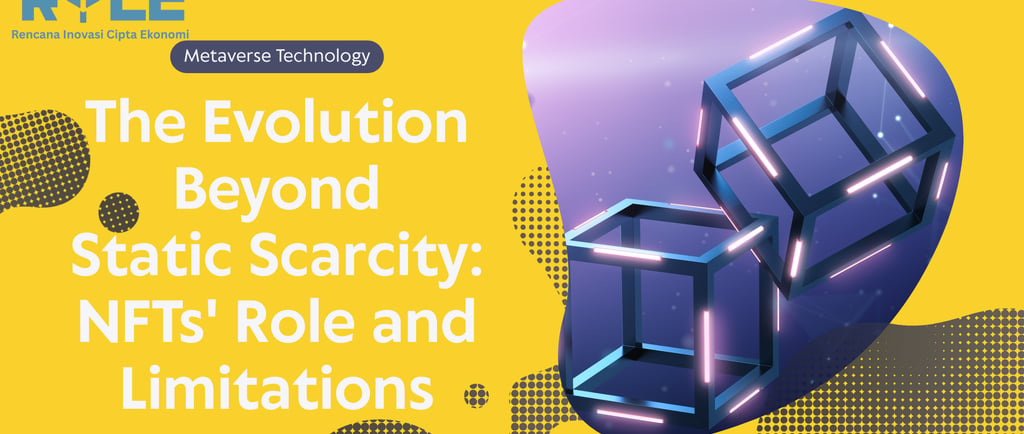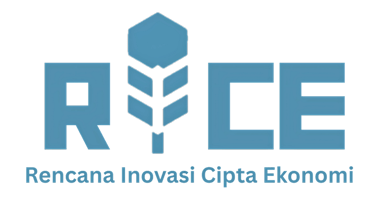The Evolution Beyond Static Scarcity: NFTs' Role and Limitations
Discover dynamic pricing, autonomous agents, and AI-governed DAOs reshaping digital value beyond NFTs.
TECHNOLOGY
Rice AI (Ratna)
9/17/20256 min read


NFTs served as a crucial proof-of-concept for digital ownership and scarcity in decentralized environments. They demonstrated the potential for unique digital assets to be bought, sold, and traded, fueling early metaverse platforms and capturing global attention. However, the initial hype often centered on speculation rather than intrinsic utility or sustainable economic models. Many early NFT projects struggled with liquidity, real-world integration, and a clear value proposition beyond collectible status. As the market corrects, the focus is shifting. For the metaverse to become a truly functional economic space, it requires mechanisms that facilitate more than just ownership—it needs systems that enable dynamic value exchange, efficient resource allocation, and robust, adaptive economies. This is where AI steps in, providing the intelligence layer necessary to move beyond simple digital certificates to complex, self-optimizing economic structures. Without this evolution, the metaverse risks remaining a niche playground rather than a pervasive digital extension of our economic reality.
AI-Powered Dynamic Pricing and Personalized Economies
One of the most transformative applications of AI in the metaverse economy will be dynamic pricing. Traditional virtual economies often rely on fixed pricing or human-driven auction models, which are slow to adapt to fluctuating demand, supply, or user preferences. AI algorithms, however, can process vast amounts of real-time data—including user behavior, transaction history, item scarcity, and external market trends—to set optimal prices for virtual goods, services, and even digital land. Imagine a metaverse where the price of a rare digital artifact or a virtual concert ticket adjusts instantly based on demand, user engagement, and even the emotional sentiment detected in chat logs. This ensures fair pricing, maximizes revenue for creators, and prevents market manipulation.
Beyond pricing, AI will drive personalized economic experiences. Machine learning models can analyze individual user profiles, preferences, and activity patterns to curate unique economic opportunities. A user interested in virtual fashion might see tailored advertisements for designer avatars, while a virtual architect might be offered specialized tools at a dynamic rate based on project complexity. This hyper-personalization extends to resource allocation, where AI can optimize the distribution of computing power, storage, or even access to exclusive metaverse zones based on a user's demonstrated contribution or need. This level of economic tailoring ensures that value is not just transacted, but also optimized for individual engagement and satisfaction, fostering deeper immersion and sustained participation. At Rice AI, our advanced machine learning frameworks are being developed to offer precisely these capabilities, allowing metaverse developers to implement sophisticated dynamic pricing and personalized economic pathways that adapt in real-time to user behavior and market conditions, creating robust and equitable virtual economies.
Autonomous AI Agents and the Rise of Virtual Labor Markets
The metaverse in 2025 will not just be inhabited by human avatars; it will be teeming with intelligent, autonomous AI agents performing a myriad of economic functions. These AI entities will go far beyond simple chatbots, evolving into sophisticated economic actors capable of executing tasks, offering services, and even creating value independently. Consider AI agents trained to act as virtual shopkeepers, managing inventories, processing transactions, and providing personalized customer service around the clock. Other AI agents could function as virtual guides, offering tours of digital landmarks, or even as skilled laborers, performing complex design tasks for virtual architecture or generating bespoke content for users.
This rise of autonomous AI agents will inevitably lead to the emergence of entirely new virtual labor markets. Humans will interact with, hire, and manage these AI agents, creating a new layer of economic activity. An AI agent might be commissioned to scout for rare digital resources, monitor metaverse trends, or even autonomously trade digital assets on behalf of its human owner, optimizing for specific financial goals. These agents could operate within predefined parameters, earning cryptocurrency for their services, which can then be used to pay for their own operational costs or passed back to their human principals. The economic implications are profound, as the metaverse gains a scalable, always-on workforce, dramatically increasing productivity and opening up new avenues for entrepreneurship where the primary "employees" are intelligent algorithms. The ability to deploy, manage, and interact with such advanced AI agents will be a significant competitive advantage for businesses operating in the metaverse, and platforms that facilitate these virtual labor markets, like those being envisioned by Rice AI, will be central to the metaverse's economic future.
Decentralized Autonomous Organizations (DAOs) with AI Governance
The concept of Decentralized Autonomous Organizations (DAOs) has already begun to decentralize governance and ownership within Web3. However, current DAOs often face challenges related to voter apathy, inefficient decision-making due to human biases, and the sheer complexity of managing large, distributed communities. Enter AI. By 2025, AI will significantly augment and, in some cases, even autonomously execute governance within DAOs, leading to more efficient, fair, and scalable economic structures.
AI can analyze voting patterns, identify potential conflicts of interest, and even propose optimal policy changes based on the collective goals and data of the DAO members. For instance, an AI could monitor transaction fees, resource allocation, and user engagement metrics to suggest adjustments to economic parameters within a metaverse game or a digital land ownership DAO. This moves beyond simple voting mechanisms to a more data-driven, adaptive form of governance. AI-powered DAOs could automatically execute smart contracts based on pre-defined conditions, resolve disputes through objective analysis of transaction logs, and even dynamically adjust treasury allocations to maximize community benefit. This integration allows DAOs to operate with unprecedented speed and objectivity, minimizing human error and biases, and ensuring that the underlying economic models of metaverse projects remain robust and responsive. The ultimate goal is to create truly self-governing, self-sustaining metaverse economies that can evolve and adapt without constant human intervention, reflecting a mature and resilient digital society. Our research at Rice AI is deeply invested in developing AI governance modules that can bring this level of intelligence and autonomy to the next generation of DAO-managed metaverse projects.
Data Monetization and AI-Driven Insights
In any digital economy, data is gold. In the metaverse, where every interaction, transaction, and movement can be tracked, the sheer volume of data generated will be immense. By 2025, AI will transform this raw data into sophisticated economic models and valuable, monetizable insights. Instead of simply collecting data, AI will be used to analyze user behavior, preferences, engagement patterns, and even emotional responses within virtual environments. This analysis can then drive highly targeted advertising, personalized content recommendations, and the creation of entirely new digital products and services.
Imagine AI detecting emerging trends in virtual fashion or architectural styles based on aggregated user creations and purchases, then autonomously informing creators or even designing new assets to meet that demand. Companies could monetize anonymized and aggregated behavioral data, offering insights to brands looking to establish a presence in the metaverse, helping them understand where to allocate resources, what types of experiences resonate with users, and how to optimize their virtual storefronts. Users themselves could gain more control over their data, potentially monetizing their own behavioral footprint through AI-managed data marketplaces. The ethical implications of data privacy and ownership will be paramount, but the economic potential for AI to transform raw metaverse data into actionable intelligence and new revenue streams is undeniable. This sophisticated data processing and monetization framework, enabled by AI, will underpin a significant portion of the metaverse's economic value, creating a virtuous cycle where data fuels better AI, which in turn creates richer experiences and more valuable data.
Conclusion: Preparing for the AI-Powered Metaverse Economy
The metaverse economy of 2025 will be fundamentally reshaped by AI, moving far beyond the foundational, albeit limited, economic models introduced by NFTs. We are on the cusp of an era where dynamic pricing, autonomous AI agents, intelligent DAO governance, and sophisticated data monetization will form the bedrock of virtual value creation and exchange. These aren't speculative concepts; they are the logical evolution driven by the need for more efficient, adaptable, and personalized digital economies.
For industry professionals, this shift demands immediate attention and strategic planning. Businesses must consider how AI can optimize their pricing strategies, how autonomous agents can extend their operational reach, and how intelligent governance can foster stronger, more engaged communities. Innovators should explore creating platforms and tools that facilitate these AI-driven economic models, understanding that the greatest opportunities lie in providing the infrastructure and intelligence layer for the metaverse's next phase. Investors should look beyond traditional digital assets to companies and projects that are deeply integrating AI into their core economic frameworks. The true value proposition of the metaverse lies not just in its immersive experiences, but in its potential to create entirely new, self-sustaining economies powered by artificial intelligence.
At Rice AI, we are committed to being at the forefront of this transformation, developing the cutting-edge AI solutions necessary to unlock the full economic potential of the metaverse. Our platforms and research focus on building the intelligent infrastructure—from dynamic pricing algorithms to autonomous agent frameworks and AI-augmented DAO governance models—that will empower businesses and creators to thrive in this evolving digital landscape. The future of the metaverse economy is intelligent, autonomous, and incredibly dynamic. Are you ready to build it?
References
Bratton, B. H. (2021). The Stack: On Software and Sovereignty (Digital Futures). MIT Press. https://mitpress.mit.edu/books/stack
Davidson, S., & Potts, J. (2016). The economics of cryptocurrencies. Staff Papers, 1-18. https://www.rba.gov.au/publications/bulletin/2016/sep/pdf/bu-0916-2.pdf
Hassan, T., & Kirn, A. (2023). Autonomous Agents in Metaverse: Opportunities, Challenges, and Future Directions. arXiv preprint arXiv:2308.06733. https://arxiv.org/pdf/2308.06733
Kim, J., & Kim, J. (2022). The Future of Virtual Worlds: Artificial Intelligence and the Metaverse. Journal of Cybernetics and Information Technology, 23(3), 209-224. https://www.koreascience.or.kr/article/JAKO202235941913708.pdf
Narayanan, A., Bonneau, J., Felten, E., Miller, A., & Goldfeder, S. (2016). Bitcoin and cryptocurrency technologies: A comprehensive introduction. Princeton University Press. https://press.princeton.edu/books/paperback/9780691171692/bitcoin-and-cryptocurrency-technologies
#MetaverseEconomy #AIEconomics #FutureTech #DigitalTransformation #Web3 #AIinMetaverse #DynamicPricing #AutonomousAgents #DAOGovernance #DataMonetization #EmergingTech #IndustryTrends #RiceAI #VirtualWorlds #Blockchain #DailyAITechnology
RICE AI Consultant
To be the most trusted partner in digital transformation and AI innovation, helping organizations grow sustainably and create a better future.
Connect with us
Email: consultant@riceai.net
+62 822-2154-2090 (Marketing)
© 2025. All rights reserved.


+62 851-1748-1134 (Office)
IG: @riceai.consultant
